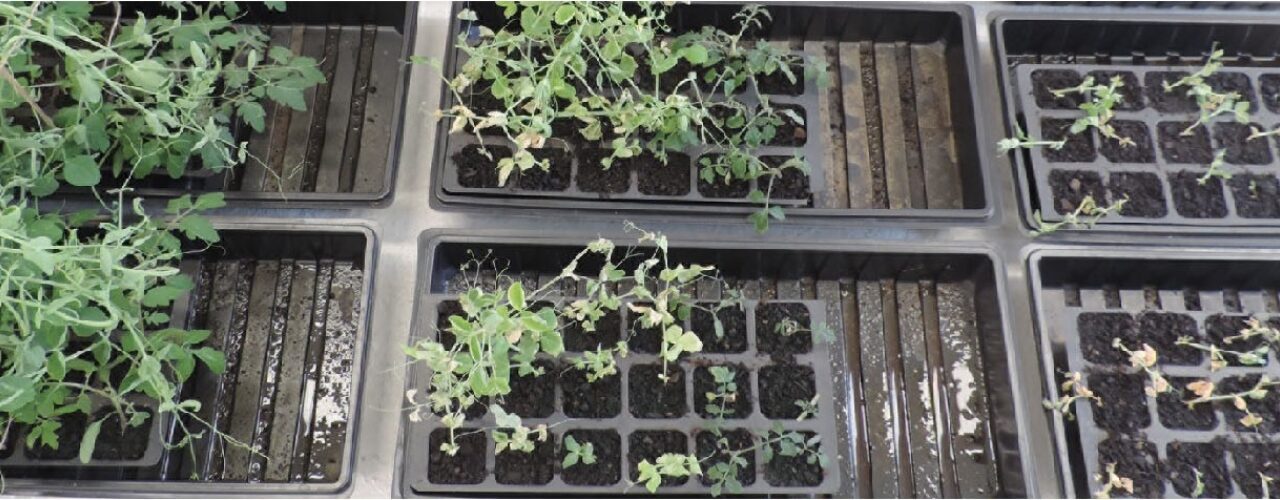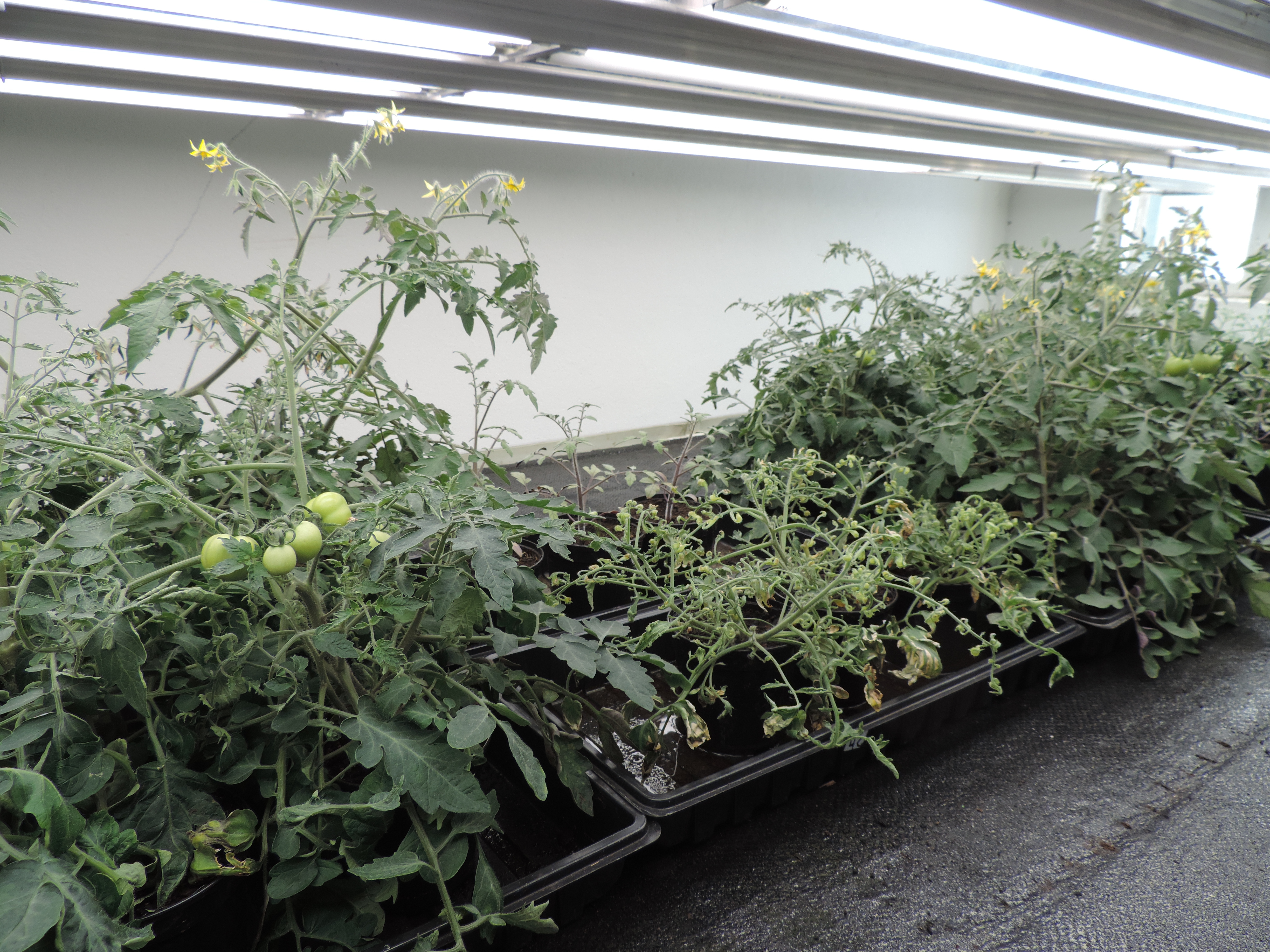
Herbicide residues in fertilisers – A challenge for organic farming
A newly published NORSØK report describes an experiment in which an organic fertiliser caused damage to pea and tomato transplants. The fertiliser contained herbicide residues.

In organic farming, organic matter and plant nutrients are recycled to maintain soil fertility in the long term. However, returning organic matter to the soil also involves the risk of introducing undesirable substances such as heavy metals, medicinal residues, pesticides or other environmental toxins. This is especially challenging for organic farmers, since avoiding the use of chemical inputs is an important principle in organic agriculture.
Since the organic standards permit the use of organic materials from conventional farming, there is a risk of such inputs containing undesirable substances, e.g., pesticide residues.
For several years, research and practical experience have shown that the use of manure, hay, straw, grass clippings, compost or vinasse containing pesticide residues has led to distorted growth in plants. Even at very low concentrations, some substances can lead to growth disorders that result in abnormal growth or plant death.
The fertiliser used in the trials carried out by NORSØK contained the active substance clopyralid. The substance can be traced to a herbicide that is used in the production of conventional sugar beets and other crops. The residual product (vinasse) from sugar production, in turn, is used as an ingredient in several fertiliser products. In the trials, various concentrations of the fertiliser were applied. At the lowest fertiliser doses, the pea plants
became abnormally elongated. The tomato transplants developed significantly fewer clusters and flowers, and the fruits that formed showed poor seed development. At higher fertiliser concentrations, both the pea and tomato plants were severely stunted or died off.
Recently, the EU Commission decided to reduce the application of herbicides containing clopyralid. Utilising bio-residues in other products, e.g., fertilisers, is good bioeconomy practice. Hence, the decision of the EU Commission is an important step towards reducing problems related to the presence of clopyralid in soil, compost and organic fertilisers. This is crucial for certified organic growers, who are often dependent on commercial fertilisers.
The report (in Norwegian), including an English summary, can be found here.
